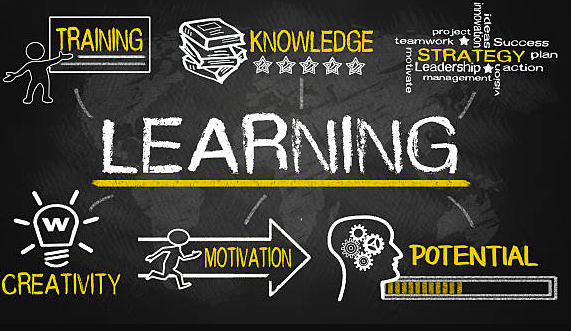DevOps talents are in great demand, and DevOps engineers are paid well. However, before you can get a DevOps job, you must have the essential competence and abilities.
DevOps certifications and training programs can help you get started on the path to a productive DevOps career. Regardless of your background, these solutions may help you develop and demonstrate DevOps skills.
There are several options for DevOps certifications and training courses that are easily accessible. Here are a few examples of free applications.
What exactly is DevOps?
DevOps is a technique that promotes cooperation between IT engineers and developers at its foundation. DevOps aims to reduce the functional silos that have historically divided IT teams from development teams, making it difficult for them to interact and encourage one other’s work.
When a company implements a DevOps strategy, IT engineers and developers collaborate closely to define what software is built, how it is provided, and how problems that emerge after deployment are fixed and used to guide the next development cycle.
DevOps is a concept, not a set of tools and techniques.
DevOps procedures, on the other hand, are enabled or enhanced by several technologies and approaches. They include approaches like continuous integration/continuous delivery (CI/CD), which entails fast and continually implementing and putting out application modifications.
They also include the usage of technologies such as Git for source control, as well as the major use of cloud computing to create more flexible and scalable software environments. Software deployment and environment provisioning are also accelerated by automated configuration management systems.
What is the significance of DevOps?
DevOps unlocks advantages for organizations and their consumers by optimizing software delivery processes and minimizing friction between development and IT teams. The following are some examples:
- Within a CI/CD pipeline, application updates are deployed more quickly and at a lower cost. This allows firms to respond more swiftly to market developments and provide cutting-edge products to users on s regularly regular basis.
- DevOps teams typically employ automation technologies to minimize expenses while boosting the reusability and repeatability of setups and environments, allowing firms to grow.
- DevOps approaches improve security by assisting in the standardization of software delivery procedures, lowering the chance of oversights that might lead to security vulnerabilities.
Engineers benefit from DevOps as well.
Because the DevOps concept strongly encourages automation, working as a DevOps engineer means spending less time on basic tasks like manually configuring a server or deploying an application release and more time on tasks like planning updates to an application architecture or assessing a new cloud service.
- DevOps may also make engineers’ lives easier by making problem resolution faster and easier. If an application release fails, developers may immediately repair it by submitting an update through their CI/CD pipeline.
- Engineers may boost their contribution to enterprises while also positioning themselves for more pleasurable careers by learning DevOps.
finest DevOps certifications and training courses for free
Consider one of the following options when you’re ready to begin your certification or training:
This course focuses on the notion of DevOps. This course is for you if you want to master the fundamentals of DevOps ideas without focusing on specific technologies. The course is free to take, but you must pay for an optional certificate.
- Engineers who already know how to utilize technical tools but want a refresher on the DevOps mindset should attend this course.
- There are no prerequisites, however, the course does require some experience with technological tools and procedures.
- The duration is 15 hours.
Continuous Delivery and DevOps course;
Details about the Continuous Delivery and DevOps course: This beginner-level DevOps course, taught by a University of Virginia professor, covers subjects such as DevOps roles, automated testing, and how to establish and optimize a CI/CD pipeline. The course is free; however, you can obtain a certificate upon satisfactory completion for a charge.
- Beginners seeking a DevOps primer should take this course.
- There are no prerequisites, however, a general technical background is beneficial.
- Eight hours in length.
This course covers the fundamentals of Jenkins, one of the most popular DevOps CI/CD systems. The training is free, but a certificate is available for $149.
- Beginning to intermediate practitioners who grasp fundamental DevOps principles but want to get started developing a CI/CD pipeline should take this course.
- Basic development and IT administration abilities are required.
- Twelve weeks, two to three hours per week.
This course, like the Kubernetes one, gives an introduction to Docker, covering both fundamental Docker tools and the Docker Swarm orchestrator.
- Engineers that wish to deal with containers as part of their DevOps duties should take this course.
- Prerequisites: A general understanding of application development and deployment.
- Three hours in length.
Preparing for Google Cloud Certification: Professional Cloud DevOps Engineer Certificate;
A hands-on DevOps training course on the Google Cloud Platform (GCP). Auditing is free; certification is not.
- Experienced practitioners who want to learn more about DevOps tools and services on GCP should attend this course.
- Knowledge of cloud computing and DevOps processes is required, as well as more than three years of industry experience, including more than one year of ear administering apps on GCP.
- Duration: three months, five hours every week.
Microsoft Certified: DevOps Engineer Expert;
This comprehensive training course covers a wide range of DevOps issues, including
- source control.
- continuous integration.
The course concentrates on Microsoft and Azure-related technologies, but it also covers fundamental DevOps ideas that apply to any environment. Although online training is free, the Microsoft Certified: DevOps Engineer Expert certification test is not.
- Practitioners wanting strong knowledge in dealing with DevOps technologies, particularly in Microsoft-centric organizations, should take this course.
- Necessities: A person must have a fundamental understanding of both Microsoft Azure programming and management, as well as be an expert in one of these fields.















































